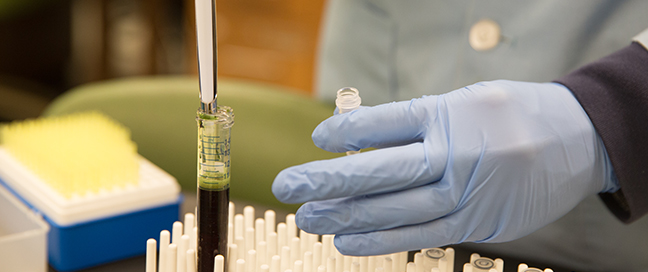About

The mission of the department is to educate students in biology to the highest level possible, consistent with their career goals and potentials.
We will do this through a program of core and elective courses, delivering up-to-date content, and encouraging active learning, critical thinking, application of scientific methods, familiarity with modern technology, and relevant field and laboratory skills.
Educational Focus
- Contributing to the advancement of the discipline through teaching and research
- Supporting interdisciplinary programs by maintaining a rigorous disciplinary base
- Supporting the educational goals of students through quality mentoring, educational planning, instructional delivery, and curricular advances
- Facilitating student discovery in science through individualized and team-oriented learning experiences
- Maintaining the highest standards of rigor and ethics in educational pursuits
- Maintaining a well-trained faculty and staff through attendance at professional seminars, workshops and meetings
- Promoting collaboration with other institutions and programs on issues of common interest
- Sharing educational information and resources of interest with the campus, public and scientific communities through electronic and/or traditional means
Inquiry-Based Philosophy
It is too often believed that science is only about learning established facts rather than engaging in a questioning process. The inquiry-based laboratory components of our introductory, first-year Biology 012 and 013 courses represents a significant departure from traditional laboratory practice, and brings them in line with the national trend toward inquiry-based instruction in university science teaching. Our introductory courses have been carefully designed to give students considerable and repeated experiences in working the scientific method, scientific exploration, and scientific development in the life sciences.
During each of two eight-week laboratory blocks, in the fall and spring semesters, students have an in-depth experience in learning biology the way biologists do, namely by developing hypotheses, designing and conducting experiments, and testing them through accepted techniques and methods. This experience occurs both in the laboratory and in the field, in teams of about four students each. Of equal importance, student teams are expected to statistically analyze their collected data and present their findings to their peers through either a formal poster session, a formal PowerPoint presentation, or by submitting a paper at the end of each theme block. The four theme blocks, over the tow semester period, are designed so that all students will gain experience with three presentation formats.
The four theme blocks broadly represent the discipline of Biology:
- Cell and Molecular Biology
- Genetics
- Ecology and Evolution
- Physiology and Functional Anatomy

